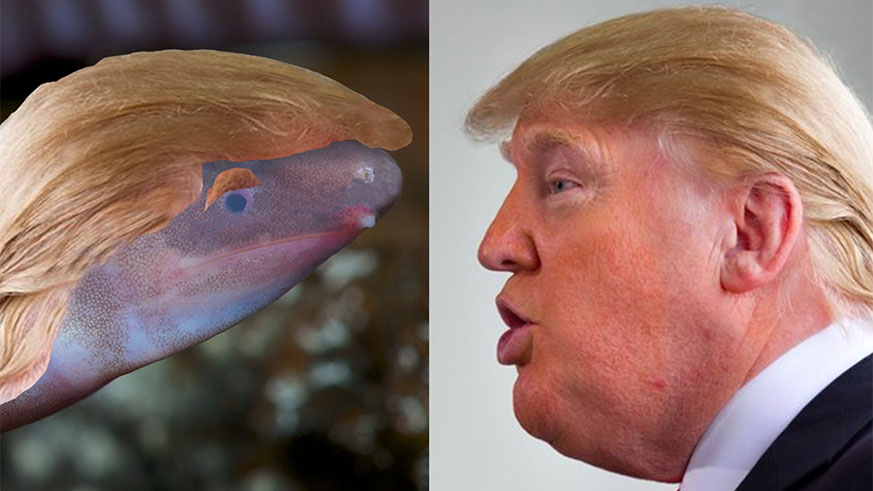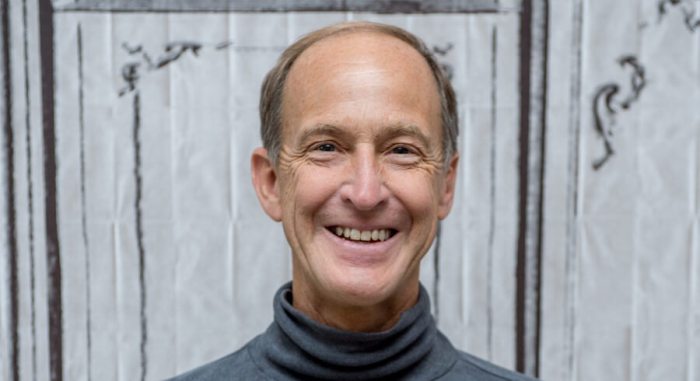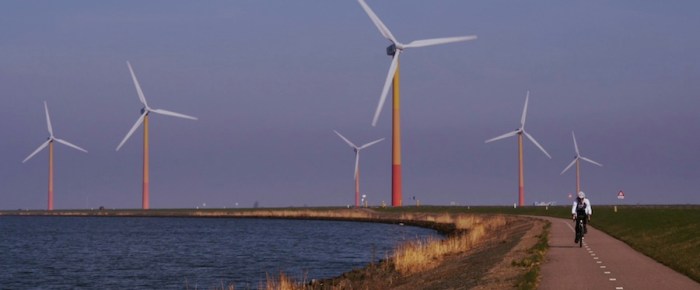A newly discovered blind amphibian that buries its head in the ocean floor has been named Dermophis donaldtrumpi, to reflect President Trump‘s denial of climate change.
The caecilian, a small legless creature, was discovered in Panama. It was named after Trump by the head of EnviroBuild, a sustainable building materials company, who paid $25,000 at auction for the rights.
EnviroBuild’s Aidan Bell said the animal had several characteristics reminiscent of Trump’s approach to global warming. “Caecilians is taken from the Latin Caecus meaning ‘blind’, and have rudimentary eyes which can only detect light or dark,” he said in a blog post that was accompanied by an edited photo of the animal sporting Trump’s signature hairstyle. “Capable of seeing the world only in black and white, Donald Trump has claimed that climate change is a hoax by the Chinese.”
Bell added: “Burrowing its head underground helps Donald Trump when avoiding scientific consensus on anthropogenic climate change and also appointed several energy lobbyists to the Environment Agency, where their job is to regulate the energy industry.”
Trump is a longtime climate-change denier who has repeatedly called global warming a hoax. He has installed other climate-change deniers in top positions at the EPA and other agencies. The Trump administration has worked to roll back environmental protections and slow the development of sustainable energy sources. Last summer, Trump pulled the United States out of the Paris Climate Agreement, a coalition of nations that have agreed to limit emissions which cause global warming.
In November, the U.S. government released a report stating that the effects of climate change were more severe than previously thought, and that we have until 2030 to take action before the effects becomes disastrous. Trump’s response: “I don’t believe it.”
The animal’s namers said their initiative wasn’t just a stunt. “While the story itself is lighthearted, EnviroBuild are really aiming to push forward an important message; with climate change only accelerating, legislation still isn’t doing enough to apply the brakes,” wrote Bell. “This means the only option is to create new avenues ourselves in which we change the way we buy, build and live our lives.”

























